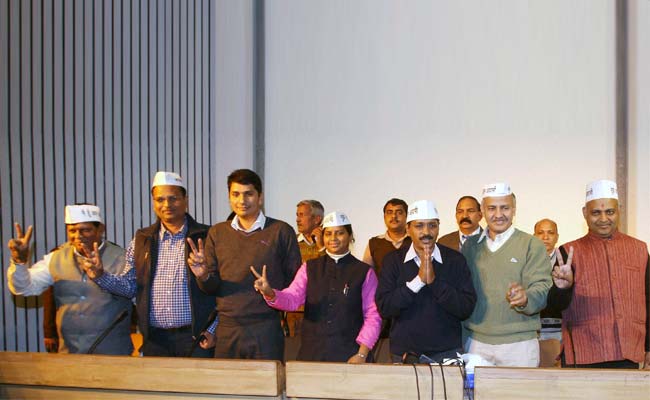
Arvind Kejriwal's Aam Aadmi Party (AAP) is making the final changes to its version of the anti-corruption Lokpal Bill, which will create an ombudsman or Lokayukta for the state of Delhi to investigate venality among elected representatives and bureaucrats. Two-and-a-half years ago Mr Kejriwal, now the Delhi Chief Minister, had teamed up with Gandhian activist Anna Hazare to engineer a huge anti-graft movement that electrified middle-class India in their demand for a Lokpal. The AAP government plans to pass its Jan Lokayukta Bill in the first week of February at an assembly session at the Ram Lila Maidan, where Anna Hazare held a 16-day fast in 2011. NDTV has learnt some of the key provisions of AAP's Jan Lokayukta Bill.
Top 10 provisions of AAP's Lokayukta Bill
The bill seeks life imprisonment as maximum punishment for corruption. However, this provision is not final yet with the Delhi Cabinet still debating it.
The bill also seeks six months jail as minimum punishment for corruption.
The Chief Minister would be in the ambit of the Jan Lokayukta.
The Lokayukta will have two separate wings - investigation and prosecution.
The investigation into graft charges must be completed within six months.
The Lokayukta will decide whether the guilty official is dismissed, removed or demoted.
The Lokayukta will have also have the power to suspend an accused officer during investigation and can confiscate property and assets of the accused official.
The complaints against the Lokayukta staff shall be decided within two months.
AAP leaders are also brainstorming whether the Lokayukta can fight elections after demitting office.
AAP's Jan Lokayukata Bill is significantly different from the Central Lokpal Bill, which was passed in Parliament in December, as the former incorporates citizens' grievances and whistleblower protection.

